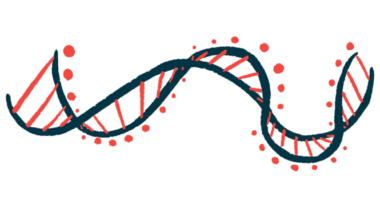Mild COVID-19 Infection Likely Triggered aHUS in 5 Children in India

Five children in India who developed or had a relapse of atypical hemolytic uremic syndrome (aHUS) in the summer of 2021 all appeared to have experienced mild COVID-19 infection, which is thought to have triggered the rare immune system disorder.
Those are the findings of a recent report by a team of Indian scientists who “suspected that SARS-CoV-2 infection might be a potential trigger” for aHUS. Of note, SARS-CoV-2 is the virus that causes COVID-19.
“We suggest increased vigilance for SARS-CoV-2 infection triggered occurrence of … HUS, including in patients with quiescent [inactive] disease for prolonged periods,” they wrote.
The report, “Anti-factor H antibody associated hemolytic uremic syndrome following SARS-CoV-2 infection,” was published in the journal Pediatric Nephrology.
aHUS is caused by the dysregulation of a part of the immune system called the complement cascade, which results in inflammation in the body’s blood vessels. In India, around half of aHUS cases in children are specifically associated with the development of self-reactive antibodies (autoantibodies) that target a complement protein called factor H (FH).
While genetic mutations can predispose a person toward developing aHUS, the disease usually requires a trigger event — such as an infection — to manifest in earnest. Since the onset of the COVID-19 pandemic, there have been some reports of aHUS that developed or worsened after infection with SARS-CoV-2.
“We observed an unusual increase of patients with anti-FH antibody associated aHUS coinciding with the second pandemic wave in New Delhi and suspected that SARS-CoV-2 infection might be a potential trigger,” the researchers wrote.
To investigate this further, the team assessed the SARS-CoV-2 status of 13 children — 10 boys and three girls — who were diagnosed with new or relapsing aHUS associated with anti-FH antibodies in the previous year. The children were ages 4–13.
In India, the COVID-19 pandemic primarily hit in two major waves: one taking place in September through October 2020, and another from April to June 2021.
Eight of the patients, who were treated at the hospital in late 2020 or early 2021, showed no sign of COVID-19 infection. However, the five children who were admitted to the hospital in the summer of 2021, during the second wave of the pandemic, all tested strongly positive for antibodies against SARS-CoV-2, suggesting infection.
All five of these children had been sick with a fever-inducing illness in the weeks prior to being admitted. Upon hospital admission, their main complaints were abdominal pain, vomiting, and low urine production, called oliguria.
Among the patients, two developed aHUS for the first time, while the rest had been in remission for several years prior.
“We report 5 patients with anti-FH associated aHUS, presumably triggered by SARS-CoV-2 infection during the second wave of the pandemic in June–July 2021. Three patients presented as relapse after a period of disease quiescence for 2–6 years,” the researchers wrote.
Following the aHUS diagnosis, the patients were treated with immune-suppressing steroids, and also given plasma exchange — a form of treatment that involves replacing a patient’s plasma, the liquid part of blood that contains aHUS-driving antibodies. This generally led to a recovery in kidney function. All but one of the five children no longer required dialysis shortly after starting treatment.
“In the absence of moderate to severe features of SARS-CoV-2 infection, patients with anti-FH associated aHUS may safely receive standard immunosuppressive therapy that is initiated when viral loads become undetectable,” the researchers wrote.
“Increased vigilance is required during the pandemic, especially in patients with anti-FH associated aHUS, who might relapse despite quiescent disease for a prolonged period,” the team concluded.







